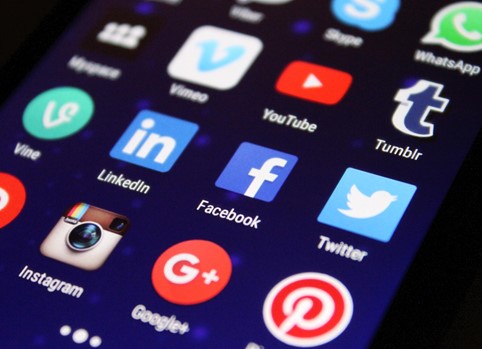How is AI having an impact on people from all walks of life?
Artificial intelligence has discreetly sneaked up on most of us unbeknownst to us. It is everywhere, including our workplace, homes, cars, smartphones, becoming an integral part of our everyday lives.
But a couple of years ago, not that many people were familiar with AI, and we are not talking about the general public. When 1500 senior business leaders were asked about AI in the United States in 2017, only 17% were familiar with it. Although they understood AI held the potential to redefine business processes, most were unsure how AI would work for them.
Cut to 2021, AI-powered solutions are becoming essential as the pandemic propels businesses across industries to adopt them for integrating & analyzing data and using the insights to improve decision-making or automate business processes. It will not be wrong to say that artificial intelligence is transforming every walk of our life.

How is AI changing the world?
But to understand how artificial intelligence is transforming the world, you first need to know what AI is.
A set of technological tools and algorithms, AI provides us with predictions, recommendations, and decisions based on various data to alter environments. It can carry out tasks predominantly done by humans.
Also Read: 7 Reasons Why You Should Invest in IT Support | Benefits of Machine Learning in Point of Sale
There are two major subsets of AI – Machine Learning (ML) and Deep Learning (DL).
- Machine Learning – ML uses algorithms that help systems learn with data, enabling them to figure out how to improve, make predictions and describe data with minimal to no human intervention.
- Deep Learning – DL, implemented in computer vision, image, and speech recognition, is based on artificial neural networks helping machines to learn from data.
Let’s look at some real-life examples of AI.
Take your mobile phone and say “OK Google” ifArtificial intelligence you have an Android mobile phone and “Hey Siri” if you are an iPhone user. Once you say these words, you will, in return, hear the pleasant voice of a man or woman talking to you. It is your virtual assistant or chatbot powered by artificial intelligence.
Thanks to the AI-based recommender system, when you switch to Netflix on your Smart TV, you will see a list of recommended titles based on your previously watched content.
Open your Facebook account, and you will see ads for things you were searching for earlier. It is again a work of AI with its retargeting algorithm.
If you are travelling to Spain and wish to read a sign written in the Spanish language, your smartphone can help you understand by recognizing the foreign characters written on the sign.
All of the above examples are how artificial intelligence will change everything – presentation, communication, processes.
How is AI impacting the businesses we interact with during our everyday life?
AI is finding innovative applications in industries across automotive, finance, health care, transportation, travel, communication while also addressing data access, algorithmic bias, AI ethics and transparency. Let’s look into some examples.
AI in the Automotive Industry
Fully autonomous self-driving cars come to our mind when we think about AI in the automotive industry. Maps are also a part of it, and so are voice-enabled devices. With Tesla and Porsche jumping on the self-driving bandwagon, transportation has come a long way from full-touch multimedia display to self-parking sports cars. According to Brookings Institution’s research, over $80 billion has been invested globally in autonomous vehicle technology between August 2014 and June 2017.
AI in Marketing
AI has become a real game-changer in how marketing and ad campaigns work. Personalized advertisements are a hit among various companies, including Facebook, Google, YouTube. Ads powered by AI target specific audiences and data generated from such campaigns help create better strategies based on demographics. Further, personalized pricing uses AI to predict the highest amount a customer can pay based on a user’s behaviour and then adjust it accordingly.
AI in Banking & Finance
Financial institutions are using software to decide whether or not to approve loans, considering various factors about the borrower, apart from just a background check and credit score. Some Robo-advisers use AI algorithms to create personalized investment portfolios based on the parameters set by users. These AI apps cost only a fraction of what stockbrokers and financial advisors charge.
AI in Healthcare
Artificial intelligence helps patients to lead a healthy life with early detection and diagnosis of various illnesses. Voice-tech devices powered by AI remind elderly patients about their eating, medication and even help with their loneliness. Currently, we’re using multiple expensive technologies, such as magnetic resonance imaging, fluorescent imaging, and computed tomography scanning. With Deep Learning, machines can learn to detect anomalies and help humanity battle several deadly diseases, including cancer, diabetes, Alzheimer’s, and many others.
Also Read: How Fintech is Going to be Big in 2021 | How to Set Up Your Own Live Stream Website for Your Audience?
AI is everywhere — from your smartphone to IoT devices.
Although some advanced AI applications, such as fully autonomous vehicles or AI that will cure severe diseases, haven’t arrived, yet we can see the presence of AI in every sphere of human activity, from entertainment to e-commerce to criminal justice.
AI and the global economy
By 2030, AI will deliver an additional global economic activity of around $13 trillion. As companies across industries integrate AI technologies, we will see a drastic shift in the economy. For instance, intelligent automation will take away the repetitive tasks that require manual labour at present, and the workforce will need to acquire digital skills to stay competitive. Additionally, countries late to AI adoption will find themselves left behind and catching up with other innovative countries. With the advantage of limiting human intervention in mundane tasks, AI will empower early adopters to have a competitive edge.
Every organization will find itself integrating AI into internal and external operations to meet its set goals. Unlike the myth saying humans will become obsolete in the workplace, artificial intelligence is about replacing repetitive tasks with advanced algorithms still controlled and managed by humans. As our homes become smarter with the internet of things (IoT) devices connected to the internet and sharing data with other devices, anyone can control their home-security, air conditioning, and lights with a click of a button. Intelligent machines can learn from each other and make decisions on their own without any input from humans.
Summary
In conclusion, artificial intelligence combined with data analytics will revolutionize many sectors, including automotive, marketing, banking & finance, and healthcare, redefining how decisions made, risk mitigated, and systems perform. These transformations will lead to significant economic and social improvements. Several issues that need addressing before we jump into the AI ship are how relevant policy formulated, legal complications resolved, and transparency introduced in solutions built using AI and data analytics.










